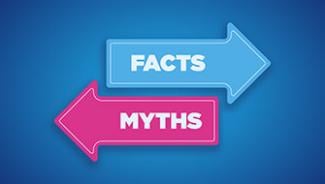I don’t want kids. How can I support friends who are pregnant or trying to conceive?

If you’re someone who doesn’t want to have kids, you may wonder how to support friends who are pregnant or trying to conceive (TTC). Here we discuss why this scenario is more common than you might think, and why it still might feel like you’re all alone. We also share things that might be unhelpful or even hurtful to say to a friend who is TTC (and explain why), and follow up with what to say and do instead to show your love and support.
I don’t want kids, and sometimes it’s hard to relate to my friends who do
It’s OK to not want to have kids! Also, you’re not alone. According to the Pew Research Center, U.S. fertility rates (the number of births per 1,000 women between ages 15 and 44) were at a record low before the COVID-19 pandemic — and they continue to drop.1 In a 2021 survey by the Pew Research Center, 44% of non-parents aged 18 to 49 say it’s not too likely, or not at all likely, that they will have children someday, up 7% from the results of the same survey conducted in 2018.2 Additionally, a 2022 study in Michigan found that one in five people don’t want to have children.3
As someone who doesn’t want to have kids, it’s also normal to have trouble relating to your friends who do have kids or those who are TTC. You don’t have to, nor will you, have all the answers on how to help or comfort them. The fact that you’re reading this article, though, already shows what a supportive friend you are, and that’s a great step.
How to talk with friends who are TTC or experiencing infertility when you don't want kids
Sometimes it can feel like everyone around you is either pregnant, trying to get pregnant or wrangling car seats and toddlers. If all your friends are having babies but you don’t want one, you may feel like the odd one out (and you may even be a little tired of all the baby talk).
But when some of your TTC friends are still trying, or even struggling with infertility, it’s natural to want to support them. But how do you connect when you really don’t know what they’re going through?
One of the best things you can do is simply listen. Listening is a way to learn more about what your friend is feeling and experiencing. You don’t have to have answers or advice, or say anything at all. By simply listening, your friend will feel heard, supported and loved. You can then use that solid foundation to connect or reconnect on topics unrelated to pregnancy and babies. You two became friends for likely many reasons. Go back to the root of your friendship, your common interests, the things that make you laugh so hard you cry, and plan conversations or activities around those.
What not to say to someone who can't get pregnant
"You're young! You have plenty of time."
Time is relative, and getting pregnant can take a lot longer than people think. Even if you know how old your friend is, you may not know how long your friend has been trying to get pregnant. Age and fertility are linked, and your friend’s age may be more of a physical or emotional factor than you realize. There’s no real way to know how much time someone has to try and conceive — fertility problems can arise at any point while TTC, and perimenopause and menopause don’t happen at a specific time for everyone.
"I'm sure it will happen eventually."
You may mean well with this sentiment, but it can ring hollow because the truth is, you don’t know if it will happen eventually. One in five women are unable to get pregnant after one year of trying.4 TTC is an unusual season of life because of its accompanying cyclical nature of grief. Every month there are two weeks of wondering followed by a test — and potentially another negative pregnancy test to cope with. The cycle of hope and disappointment month after month can feel unbearable and overwhelming.
"Have you considered adoption?"
If your friend is trying to conceive, that’s the goal they’re hoping for (at least right now), and it’s the journey they’re struggling through. Suggesting adoption may feel like you’re helping them find a solution, but resist the urge to “solve” someone else’s struggle. Adoption can be a wonderful option, but it’s also a very personal one. If your friend brings up adoption, that’s great! Follow their lead and talk about it. But don’t bring it up unless they do.
"Why don't you try IVF?"
Much like adoption, IVF is also a personal decision. And there are lots of reasons why talking about it and other fertility treatments could make your friend feel worse than before. Maybe they’ve already tried it, or are trying it now, but it hasn’t been successful. Maybe they wish they could try it, but they can’t afford to. According to the American Society for Reproductive Medicine, the average cost of one IVF cycle in the U.S. is $12,400.5 IVF also often requires hormones and multiple invasive steps.6 If your friend wants to discuss fertility treatments, let them bring up the topic.
"I feel like all you ever talk about is pregnancy"
Being honest about your feelings isn’t a bad thing, but is this a feeling your friend needs to hear about? Maybe pregnancy has been monopolizing the conversation, and your friend just hadn’t noticed you weren’t OK with it. And maybe it isn’t really all they talk about, but you’ve just been in more conversations about it than you’d like. Either way (or even if it’s both), those feelings are valid! But how you handle it is crucial.
It’s understandable to miss your old friendship and its rich and varied conversations. If you’ve had all the pregnancy talk you can handle, try gently redirecting the topic. If you feel comfortable doing so, talk to your friend about how you feel — you can get into detail or simply say, “How would you feel about changing the subject?”. You can also actively decide which conversations you want to participate in. Your friend may miss those other topics, too, and a redirect might be welcome for both of you!
What to say to someone struggling with infertility
"I'm sorry it's taking so long."
Keep it simple. Leave a door open for your friend to talk more about it if and when they want to.
"If you want to talk,I'm here to listen."
Only say this if you’re truly up for listening. (There’s no right or wrong here.) If your friend group is filled with pregnancies and babies, your friend may appreciate being able to talk to someone who isn’t or hasn’t been pregnant. Because you don’t have and don’t want kids, pregnancy envy won’t be a problem in a conversation with you.
"It's not fair."
For your friend, it may feel like everyone around them is pregnant (except you, of course!) when they have been doing everything they can. This can be especially hard to deal with if another member of your friend group gets pregnant easily while your friend is TTC. It may be a relief for them to hear that someone else recognizes that part of the struggle.
"What can I do to help?"
Especially if you’re a fixer by nature, you may want to help your friend who is TTC. But having never been in their shoes, you may have no idea where to start. The best thing you can do is ask. Consider offering some options, which can make it easier for some folks to ask for what they want, instead of defaulting to “nothing.”
One option could be a no-baby-talk movie night where you bring over their favorite takeout food and late-night snacks. Another could be a long walk or hike where they can vent and get their heartrate pumping. They may just need a shoulder to cry on, a break from thinking about it or something else you’d never dream of — so just ask!
"You're not alone."
Even though you’re not sharing this experience with your friend, letting them know you’re still there for them can mean so much.
"I love you."
Your friends who are TTC are in an emotionally, physically and mentally complex season of their lives. Think of some of the big changes you’ve had in your life, the times that were hope-filled or monumentally challenging. Trying to reconnect with those feelings may help you better empathize.
As you recognize and value this time in your friends’ lives, it’s also important that they recognize and value your decision to not have kids, too. If you and your friends have had many of the same life experiences at about the same times, it may feel strange for your friends to be going through something so life-changing and not experience it with you. That may lead to them questioning your decision. Be open and honest about how you feel. You may even need to put some boundaries in place.
With all these tips and ideas for ways to connect and support your friends, it may be helpful to remember that having different experiences, hopes and aspirations is part of what makes life so wonderfully diverse — and friendships so interesting and meaningful! Sometimes dynamics change in friend groups and that’s OK. Change is inevitable and it’s not always a bad thing, it gives us all the opportunity to learn, expand and grow.
Related Articles
Sources :
- Barroso A. Pew Research Center. With a potential ‘baby bust’ on the horizon, key facts about fertility in the U.S. before the pandemic. Updated May 7, 2021. Accessed December 2, 2022. https://www.pewresearch.org/fact-tank/2021/05/07/with-a-potential-baby-bust-on-the-horizon-key-facts-about-fertility-in-the-u-s-before-the-pandemic/
-
Brow A. Pew Research Center. Growing share of childless adults in U.S. don’t expect to ever have children. Updated November 19, 2021. Accessed December 2, 2022. https://www.pewresearch.org/fact-tank/2021/11/19/growing-share-of-childless-adults-in-u-s-dont-expect-to-ever-have-children/
-
Neal ZP, Neal JW. Prevalence, age of decision, and interpersonal warmth judgements of childfree adults. Sci Rep. 2022;12 (11907). doi: 10.1038/s41598-022-15728-z. Accessed December 2, 2022. https://www.nature.com/articles/s41598-022-15728-z
-
Centers for Disease Control and Prevention. Infertility. Updated March 1, 2022. Accessed December 2, 2022. https://www.cdc.gov/reproductivehealth/infertility/index.htm
-
American Society for Reproductive Medicine. Is In Vitro Fertilization Expensive? Accessed December 2, 2022. https://www.reproductivefacts.org/faqs/frequently-asked-questions-about-infertility/q06-is-in-vitro-fertilization-expensive/
-
American College of Obstetricians and Gynecologists. Treating Infertility. Updated August 2022. Accessed December 2, 2022. https://www.acog.org/womens-health/faqs/treating-infertility

Myths or facts?
"I can get pregnant at any time of the month."
"A menstrual cycle is always 28 days long."
Discover the truth about "facts" you may take for granted!

Can I get pregnant if I'm over 35?
If you’re over 35 you may need a little more patience and greater understanding about your fertility window to help you have a baby naturally.

Can you get pregnant on birth control?
You may wonder if you can still get pregnant whilst using contraception. Discover how likely this is to happen.




